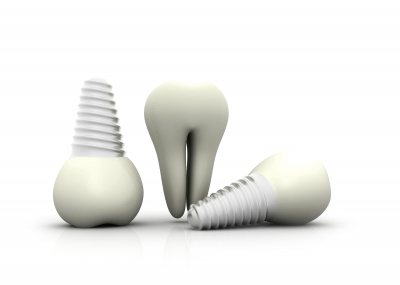An implant is a titanium screw that is placed in your jawbone where a prosthetic tooth will be fixed. Implants are a durable solution to replacing missing teeth. The following are seven facts you need to know about dental implants before you get them.
1. Dental implants prevent jawbone shrinkage
Losing a tooth is probably not a big deal to many people, especially if the tooth is from somewhere a few people can see. Tooth roots are crucial to the condition of your jaw bone. If you lose a significant amount of teeth and roots, your jawbone will dissolve. Since implants are fixed in your bone, this helps to stimulate it and prevent it from shrinking.
2. They help prevent your face from collapsing
When someone loses many teeth, their jawbone begins to shrink and their face eventually collapses. Cheeks become hollow if they are not supported by your teeth and jawbone. Another effect of losing too many teeth is that your lips pucker, the distance from your nose to your mouth declines making you appear older than you really are.
3. They have similar impact as natural teeth
Not everybody agrees that dental implants could be stronger than natural teeth. A study by the Official Journal of the Academy of Osseointegration found that 4-6 implants can have the same impact as 16 missing natural teeth. Although more research on the subject is required, this revelation shows the strength of dental implants.

4. Adjacent teeth are not altered
One feature of dental implants is that your adjacent teeth will not be altered to support the implant. Dental procedures such as bridges and dentures require shaving or tooth extraction so that the dental appliance may fit well.
5. Dental implants are better than dentures and bridges
With a bridge, two adjoining teeth are filed and this could easily make them weak and vulnerable to decay. Dentures have fitting problems and could slip, chaff or even fall out. According to Dental Implants Glasgow, a specialist cosmetic dentist in Scotland, dental implants are not as prone to these physical problems, which can save you money in the long term.
6. But they still require maintenance
Although dental implants are strong, durable and do not decay, you are still likely to suffer from gum disease if you do not care for them. In addition, you could easily shorten the lifespan of your dentures by failing to care for them accordingly. The same as natural teeth, you should floss and brush your implants on a daily basis.
7. And repairs
Dental implants wear and tear the same as other dental elements. If your implant becomes loose, there might be inflammation or bone loss around it. If your implant breaks, you may need to have it repaired or replaced.

Leave a Reply